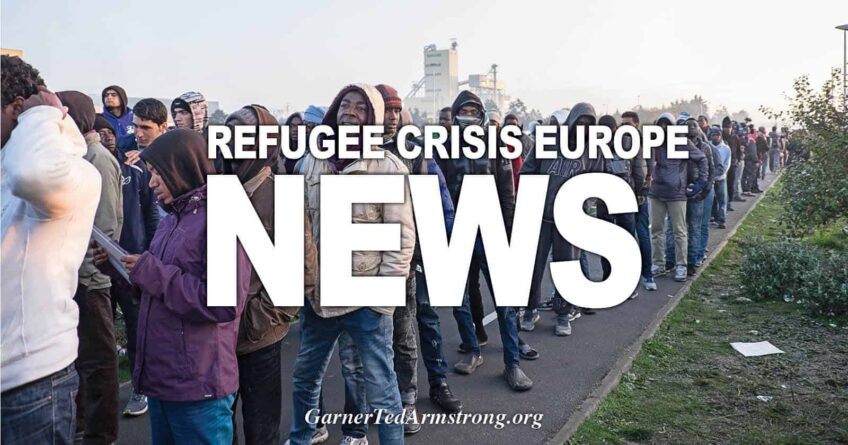Balkan countries agreed to create a joint database and develop cooperation in a bid to deal with the continuing migrant and refugee crisis and prevent another major influx of people heading for Western Europe.

Ministers at the conference in Sarajevo Photo: Anadolu
Security and human rights ministers from the Balkans and neighbouring countries agreed at a meeting in Sarajevo on Thursday to create a database which will be compatible with similar systems in Europe in order to track migrants.
“We must be able to see if those people [migrants] previously stayed in Europe,” Bosnian security minister Dragan Mektic told media after the meeting.
“We will see if it is possible for us from the Western Balkans to become part of FRONTEX [the European Border and Coast Guard Agency],” he added.
Mektic explained that migrant readmission agreements between countries must be respected and said it was important to strengthen of state services like the border police.
“We also have to think about the joint return of migrants to third countries or countries of origin, so that each state strengthens the border service and the guards,” he said.
The meeting was attended by representatives of most countries on the so-called Balkan Route – Bosnia, Croatia, Serbia, Montenegro, Albania, Greece, Austria and Slovenia.
It involved two panels, one dedicated to security and the other to the humanitarian aspects of the crisis.
Bosnian minister of refugees and displaced persons Semiha Borovac told media that Bosnia has managed to respond adequately to the recent influx of migrants entering the country.
“The priority is the creation of accommodation capacity. We have shown that migrants can get all the necessary assistance,” Borovac said.
Bostjan Sefic, state secretary at Slovenia’s interior ministry, told media that since November 2017, the number of illegal immigrants has been constantly increasing.
“The situation is under control, but it is time for joint activities to ensure that everything is under control. The trend is negative and we must immediately approach the realisation of concrete measures of protection,” Sefic said.
He argued that it would not be good if EU members are forced to adopt unilateral measures and therefore it was essential that countries in the region cooperate to ensure stability.
Bosnia has faced a migrant crisis that peaked in late May after almost 5,000 illegal entries were registered since the beginning of the year.
The International Organisation for Migration, the UN migration agency, also warned on June 1 that migration flows through the Western Balkans are still on the rise.
From January to the end of May, authorities in Bosnia and Herzegovina, Montenegro and Albania registered more than 6,700 new migrants and asylum-seekers, a more than two-fold increase on the 2,600 migrants and asylum-seekers registered in the three countries over the whole of 2017.
Read more:
‘New Balkan Route’ for Migrants, Refugees Causes Alarm
Bosnia Deploys Police to Border to Stop Migrants
Arctic Weather Freezes Migrant Flow Across Bosnia
[Disclaimer]







